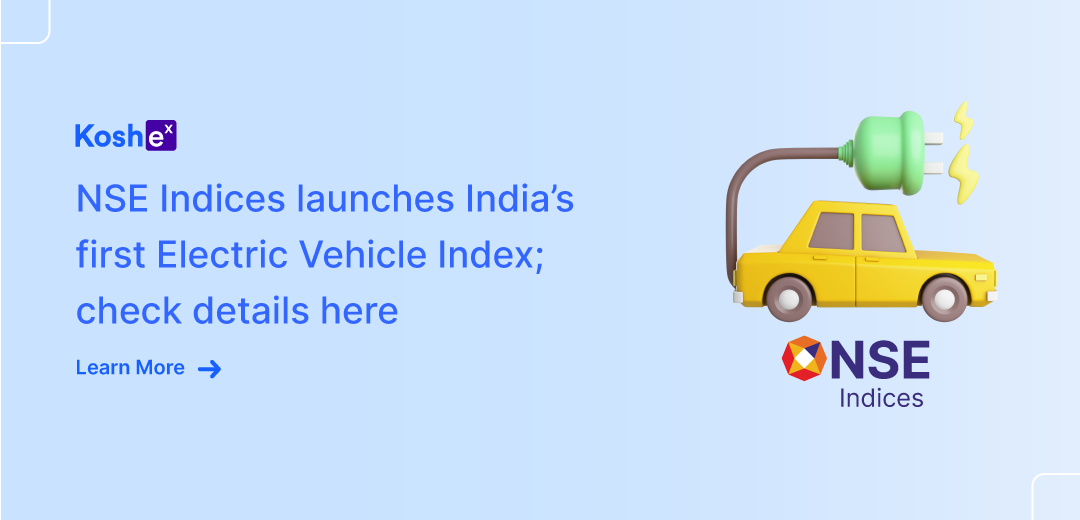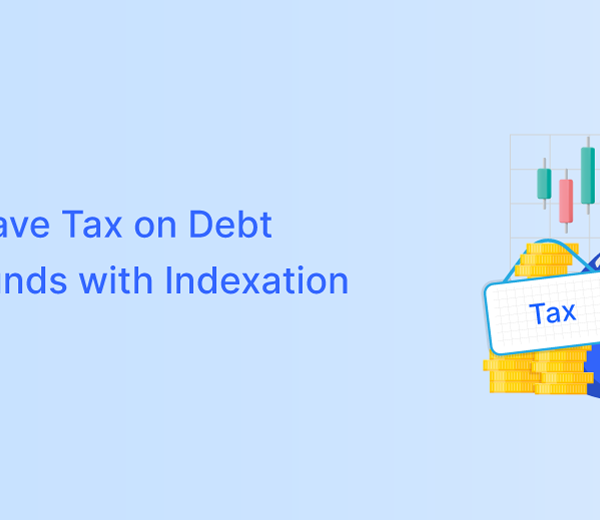What Is The NSE’s Electric Vehicle (Nifty EV) Index?
NSE Indices Limited, a subsidiary of the National Stock Exchange (NSE) specializing in index services introduced a new thematic index called the Nifty EV & New Age Automotive Index. This is India’s first-ever Electric Vehicle Index.
This index is designed to track the performance of businesses within the electric vehicle (EV) sector and those engaged in advancing new-age automotive vehicles and associated technology.
The new index is expected to act as a benchmark for asset managers and be a reference index tracked by passive funds in the form of Exchange Traded Funds (ETFs), index funds, and structured products.
What Are The Index Details?
The base date for the index is April 2, 2018, and the base value is 1000. The index will be reconstituted semi-annually and rebalanced every quarter. This ensures the index’s relevance and accuracy in tracking the dynamic EV market landscape. Stocks forming part/going to be a part of the Nifty 500 index at the time of review are eligible for inclusion in the index.
The dividend yield of the index stands at 0.72%. The price-to-earnings (P/E) ratio is 33.07 and the price-to-book ratio is 6.09.
What Does The Index Include?
The Nifty EV & New Age Automotive Index includes EV manufacturers, new-age automotive vehicles, and electric batteries. It also includes companies that build autonomous vehicles and suppliers of autonomous vehicle technologies.
Here is the sector representation and sector weight of the Nifty EV & New Age Automotive index.
| Automobile and Auto Components | 72.13% |
| Information Technology | 11.31% |
| Chemicals | 10.63% |
| Capital Goods | 6.39% |
| Oil, Gas & Consumable Fuels | 3.37% |
| Consumer Services | 0.18% |
Here are the top constituents by weightage in Nifty EV & New Age Automotive.
| Bajaj Auto | 7.08% |
| Tata Motors | 6.49% |
| Mahindra & Mahindra | 5.83% |
| Maruti Suzuki India | 5.28% |
| Exide Industries | 4.78% |
| Bosch | 4.56% |
| Samvardhana Motherson International | 4.45% |
| Eicher Motors | 4.42% |
| CG Power and Industrial Solutions | 4.30% |
| Himadri Speciality Chemical | 4.28% |
Together, these companies form the backbone of the portfolio. This highlights a diverse combination of automotive and industrial leaders.
The Significance Of The Index
The Indian government has consistently given importance to policies that promote the adoption of electric vehicles. This move is aimed to establish India as a major manufacturing hub for EVs.
These policies are intended to support the production of technologically advanced EVs within the country, attract investments from renowned global EV manufacturers, and boost the Make in India initiative.
Mukesh Agarwal, the CEO of NSE Indices said, “Nifty EV & New Age Automotive index aligns with NSE’s vision to provide innovative indices in line with market trends. The launch of the Nifty EV & New Age Automotive index will facilitate the relation of products, which will create an opportunity for asset managers to invest in the electric vehicle and new age automotive market thereby providing an investment vehicle to investors.”
What Should You Know Before Investing In The Index?
Before you invest in the index, you should:
- Review the index methodology and factsheet available on the NSE indices website. This will help you understand the index composition, eligibility criteria and rebalancing rules.
- Figure out your investment goals and risk appetite to assess if the Nifty EV & New Age Automotive index aligns with your investment strategy.
- Understand the potential risks and benefits of investing in the EV and new-age automotive sector through the index. This can help you make an informed decision.
In Conclusion…
The Indian government is implementing policies to boost Make in India and attract global investors. In March 2024, the government rolled out the EV policy to transform India into a hub for EV manufacturing. The launch of this new index shows how the government wants to attract further investments in the EV sector. This will help the economy build a sustainable path towards a greener tomorrow.
Before you invest in this index, understand your investment goals, risk tolerance, and investment horizon. This exercise will help you understand if the index will be a suitable fit for your investment portfolio.









Leave a Comment